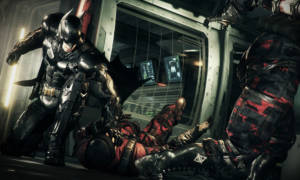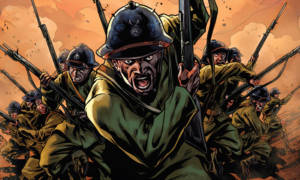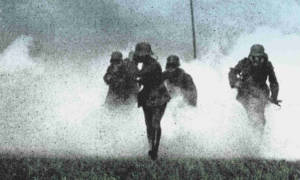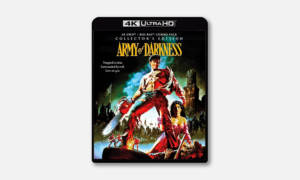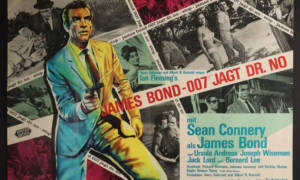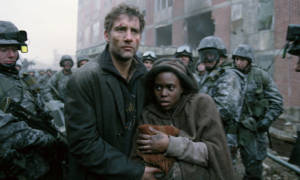Video games have come a long way since quarter-operated arcade cabinets. We’re not disparaging arcade cabinets. The opposite. We love them and we have been known to patronize the occasional arcade bar. We’re just making the observation that there’s a lot more potential for storytelling on the modern PC or console than their 8-bit predecessors and artists are finally unlocking that potential.
We’ll limit ourselves to this and the last generation of consoles and the PC equivalent, since that’s what the majority of us are going to have hooked up. And we’re also going to avoid console or PC exclusives, which mean games like Halo, Uncharted, and The Last of Us won’t be showing up on this list despite being massive achievements in video game storytelling. We’re also still frustrated that The Last of Us was a Playstation exclusive since it would have made much more sense to release that game to as wide an audience as possible.
We’re also not going to include games like Portal or the Batman: Arkham series, since they could only really be fully experienced as video games. Our picks should bridge the gap between movies and games, carrying the significant parts of both.
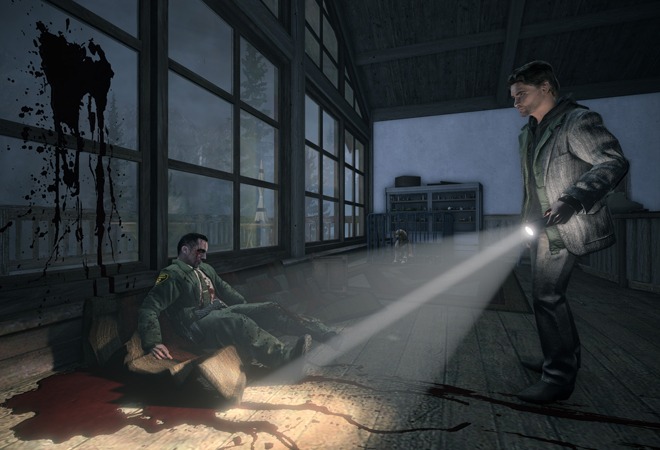
Alan Wake
Alan Wake starts off with the successful detective novelist Alan Wake traveling with his wife to Bright Falls, a picturesque town in the American Pacific Northwest. The reason for the trip is the fairly standard writer’s block, but where the story really sets itself apart from the hackneyed trend of “no more write good” is how deeply Wake’s insecurities run and holy shit, do they run deep. It really makes us rethink our aversion to entertainment’s trope of the writer being the main character. If Stephen King ever wrote a video game, it’d be Alan Wake.
It quickly becomes the story of a man’s complete and elemental breakdown and his struggle trying to rebuild his decimated self-confidence. The story is so tightly constructed, the characters so well acted, and the environments so immersive that any traditional definition of “playing” is abolished. In the same way a movie keeps playing even if you leave the room, there’s a great sense that this game is going to happen with or without you and you’re just there to watch. That, or the sense that if you’re not there to stop it, Wake’s going to get swallowed up by the game’s villain.
It also helps that it perfects the cliffhanger format from movies and television and the game is broken up into episodes. It’s done so well it felt wrong to keep playing after the episode’s credits rolled and we’d often give ourselves a day or two to digest what we’d just seen. We recommend playing at night, so the full effect of the game’s suspense and it’s use of light and shadow can be felt.
Closest Movie: Shutter Island hits a pretty similar suspenseful atmosphere, even if the subject matter is different.
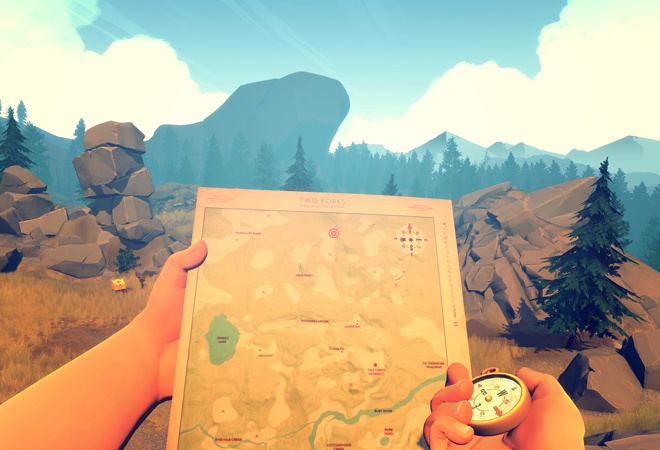
Firewatch
This is one of the best damn stories ever told, with some of the tightest writing, best character development, and most beautiful settings present in any medium. It starts with Henry, our main character, becoming a fire lookout in the Shoshone National Forest as a coping mechanism for his wife’s developing dementia. There’s a real sense of loss felt at the beginning and starts the story in a place of almost serene pain and escapism. We’re introduced to Delilah, another, more seasoned lookout, whose voice on the walkie-talkie is the only real human contact Henry has.
It’s a unique setup for a video game, maybe even for a movie and it begs the question, how did this work at all? It was certainly a gamble, but they must have known they had something special with the story because what should be a mundane summer in the wilderness quickly takes compelling turns the player could never have expected. They thought they were getting a walking simulator with a distinctive art style and ended up with a work of art, both visual and narrative.
The game lends itself to short bursts. It can certainly be completed in one sitting, but, like Alan Wake before it, it’s best broken up over a lengthier period of time. A week seems to be the sweet spot for this one, giving you plenty of time to digest the story and draw your own conclusions, but not torturous cliffhangers between stopping points.
Closest Movie: We’ll say Into the Wild for the isolation of the game, but we can’t really think of anything all that similar in games or movies. There are elements of a whole bunch of genres in here.

Dear Esther
We (or at least this author in particular) are suckers for anything that blends the Irish/Scottish landscape with the supernatural, which is exactly what Dear Esther does. The player is shipwrecked on an abandoned island without knowing who the main character is. There are excerpts of letters from the man to Esther, presumably his wife, who died in a car accident.
Discoveries are exploration driven, with different excerpts being read off based on the locations the player walks to. Excerpts change based on playthrough as well, so revisiting the game a few times is worth it. Each playthrough contributes to the whole.
As for the supernatural, like we said, the island’s abandoned. Most of the somber letter readings are prompted by the discovery of various ruins or wrecks, too, so there’s a healthy dose of ghostly buildings as well. We don’t want to spoil too much, so we’ll leave it at the classic question “am I really alone here?”
Closest Movie: Think Calvary for the seaside British Isles setting, and Deja Vu for the multiple playthroughs.
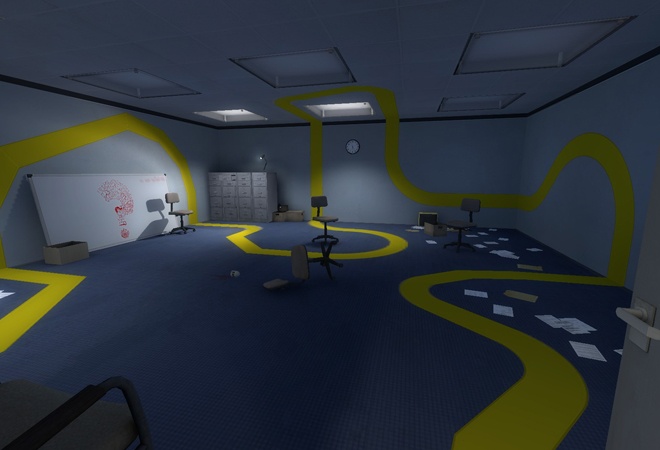
The Stanley Parable
If an American narrated this game, it wouldn’t be nearly as good. It’s a sad and simple truth that we Americans just have to deal with, but the English are much, much better at narrating things. Kevan Brighting does an amazing job bringing life and depth to this game. It’s the best narration of any medium we’ve ever heard.
The Stanley Parable is a game that defies description simply because there isn’t a whole lot like it in the gaming community. On the surface, it’s a walking simulator with clever British narration cracking jokes at your expense and is a ton of fun for the first playthrough. But then you find that the first playthrough isn’t really the end of the game, and that where things begin to diverge.
Ultimately, the game rewards curiosity and exploration and ends up being a much richer experience than you’d expect. It’s like a choose your own adventure book was made into a movie which was then adapted to a become a video game. There are checkpoints and saves, but you’re far better off playing through as much as you possibly can the first time you sit down with it. Breaking the game up actually detracts from the experience, so set aside a few hours on a Saturday or Sunday afternoon and play.
Closest Movie: Hitchhiker’s Guide to the Galaxy (specifically, whenever Stephen Fry is talking)
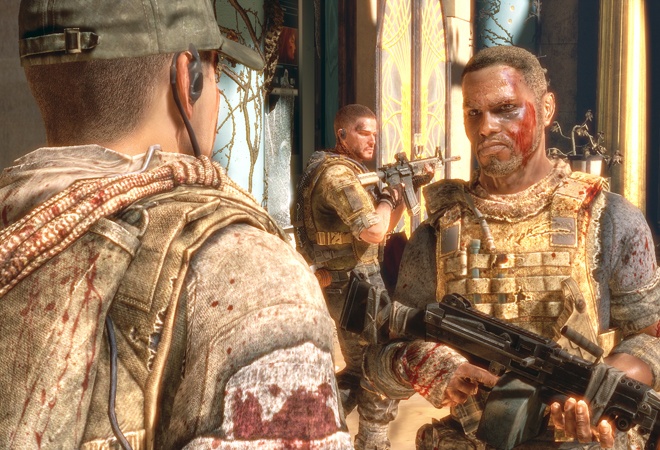
Spec Ops: The Line
This is one of the more emotionally driven games on the list. It’s morbid curiosity that sees you advance through the game, since it’s definitely not a game that makes you feel better about yourself or your actions or really life in general. Put simply, this game can make you hurt.
The start of the game has your character and his two comrades entering a sandstorm stricken Dubai, searching for the “Damned 33rd” Infantry Battalion of the United States Army and then everything gets worse. That’s all we’ll say about the plot. We really don’t want to spoil it for you because the power of the game comes from having certain realizations yourself.
It’s one of the few games that treats you one hundred percent like an adult. It doesn’t hold your hand, shoving your face into the story at every thematic point. It progresses naturally, relying on the player’s intelligence to piece things together. It’s original storytelling that holds up and came at exactly the right time in gaming.
Closest Movie: Apocalypse Now
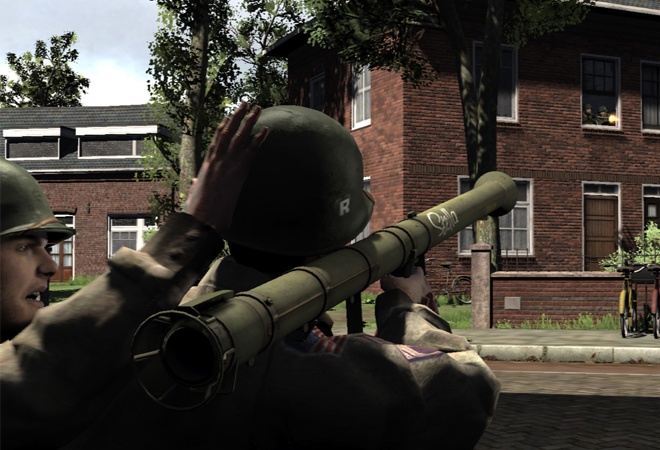
Brothers In Arms: Hell’s Highway
World War II shooters have gone out of style with Medal of Honor, Battlefield, and Call of Duty all forsaking the genre when sales started to dip/other people stopped making the games. Brothers in Arms never modernized, with Hell’s Highway being the last entry of the franchise and there’s some respect that due to the developers for that decision.
There was also a much stronger focus on storytelling in the Brothers in Arms series, with the strongest example being Hell’s Highway. There were some running threads and callbacks from earlier games in the series, but for the most part the story was self contained. The 101st Airborne drops and glides into occupied Holland and from there the player follows Staff Sergeant Matt Baker as he leads his men through Operation Market Garden.
Death means something in this game, which is a rare thing for modern shooters. Most of the time we’re just trying to plug some nondescript terrorists/Russians in the face and not really caring how many of our guys make it out on the other end. Enemy soldiers come apart when you shoot them and there are a few times when there’s some assorted viscera in a cut-scene and seeing these things reminds you that you’re not playing a video game, you’re seeing a slight dramatization of someone’s early twenties.
Closest Movie/Miniseries: Band of Brothers
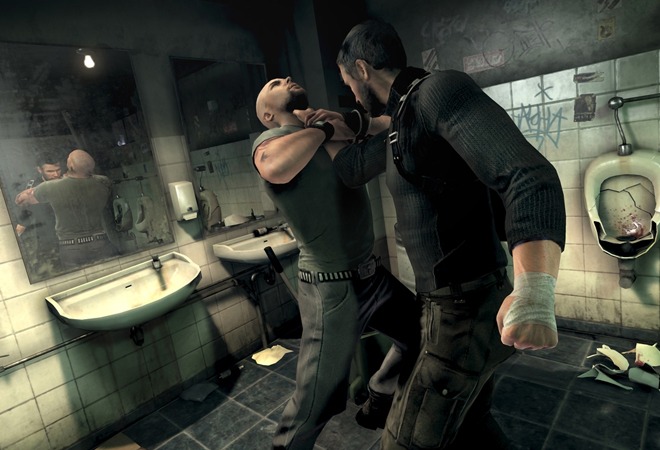
Splinter Cell: Conviction
Splinter Cell has an interesting trajectory because its first few entries feel a lot like video games. There’s multiple layers to remaining stealthy and it’s certainly a slower paced game, focusing more on the player’s patience and planning than their ability to efficiently murder foreign nationals. Splinter Cell: Conviction took a look at the grittier, fast-paced trend in espionage movies and thought, yeah, we can do that.
The game is streamlined. It doesn’t have the multiple layers of stealth and while some diehard fans bemoan the loss, it’s undeniable that it makes the game more accessible and fun. It’s hard to not feel like an international badass while climbing all over buildings and plugging evildoers with the series’ signature array of silenced weapons.
But what makes the game film-like is its surprisingly solid plot. It isn’t terribly original, but it doesn’t have to be to be good. Stories about family and country, when written well and with conviction (oh, we get it now), hit close to home. There’s also a decent amount of corporate conspiracy plotting in the game and at least half-asks, just how ethical are Private Military Contractors really? We’re not making the call, we’re just point out the question.
Plus, Michael Ironside brings some serious weight to Sam Fisher and is easily one of the best voice-over performances in the business. His presence elevates the game even further, something that later entries suffered without.
Closest Movie: The Bourne Trilogy
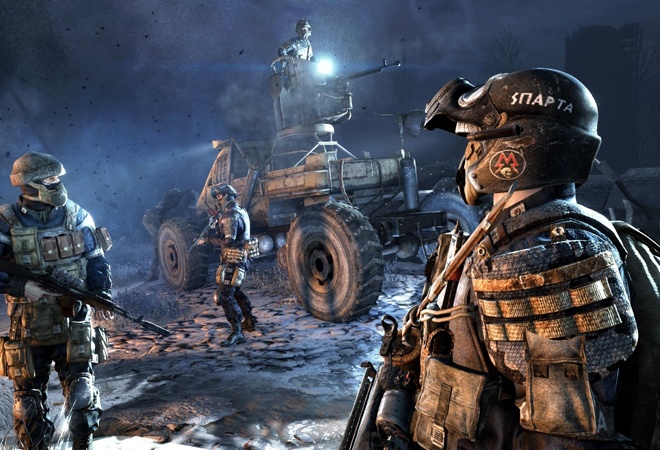
Metro 2033
Metro 2033 has been getting a bit of attention lately, and deservedly so. It’s recent remaster, sequel, and sequel’s remaster brought a solid atmospheric shooter into the spotlight when it didn’t quite get the attention it should have the first go around. The remasters have their place and they’re absolutely worthwhile, especially if you want the latest experience gaming tech offers you. But if it doesn’t matter as much, we recommend picking up the original. It shows its age a bit in the graphics department, but there’s something about the simplicity of the game that endears itself to the player. Or at least to us.
Whichever version you decide to pick up, know that you’re getting a game that was made with story in mind. The game is based on the work of Russian author Dmitry Glukhovsky and follows Artyom in his journey through the Moscow metro system and bits of the irradiated surface. One of the strengths of the game is the mix of the supernatural with the pseudo-scientific. Creatures were mutated into threatening enemies, and people were nuked into apparitions and ghostly-voices. There is a real sense of dread over the entire game no matter what apocalyptic danger you’re facing down and the “Dead City” chapter is probably the finest example in the game.
Glukhovsky also purposefully chose gaming over cinema for the first adaptation of his work, thinking it was the best way to deliver his story. He was right and the process mixed the best of both media, so while you know you’re playing a game, you’re also pretty sure you’re watching a young soldier’s quest through a post-nuclear Russia.
Closest Movie: Mix in some ghost stuff to The Road and you have something pretty close. But also Metro 2033, as the author is in talks to make a movie based on the book and video game and the bits of preliminary news coming out have us optimistic.
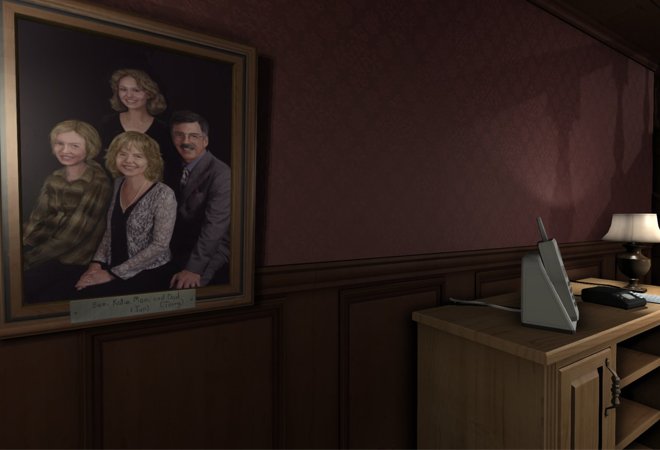
Gone Home
Gone Home is set in a mansion in Portland, Oregon, and if you look at the cover art for the game, there’s a lot of purple, light in only one window, and the house has a lot of sharp angles all over the place. If that doesn’t set you up for a haunted house exploration game, well, then we’re bad at predicting things.
Turns out we’re bad at predicting things, because there’s no ghosts in this game, but don’t think that there’s no suspense without them. There’s a great sense, from the start, that there’s something wrong with the house and the family in it. The first sign is there’s no one to greet the main character as she returns home from a year long trip and no one from the family appears for the duration of the game, save for a few photographs or paintings.
The game is driven by the players object based discoveries and inductions and becomes a sort of American Beauty situation. Not that anyone’s dad wants to have weird sex. More like something’s not quite right at the core of this all-American family.
The game is great about giving freedom of exploration while also maintaining a fairly linear storyline. The story is engrossing and there’s genuine curiosity that keeps the player interested. For this one more than any other entry on the list, “game” doesn’t feel like quite the right word.
Closest Movie: It’s hard to describe this game because there are so many elements from so many genres in it. The atmosphere comes pretty close to The Sixth Sense and its ghost scenes, but the story hits a little bit more of Stand by Me‘s struggle with maturity and exploration therein. All we can really say is, if you like suspense as well as meaningful character development and familial relationships, Gone Home is worth your time.
















